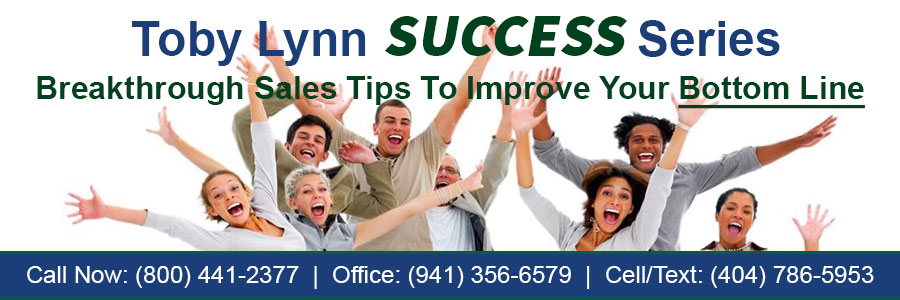I’ve helped to present many buyer seminars over the years and my husband Thomas has literally held hundreds of them generating almost $1,000,000 in commission income annually.
Done well, they’re a time-efficient way to get yourself in front of more than just one person at a time and be able to present your unique service offer.
Are you now thinking about putting yourself out there and hosting a seminar or webinar? Hosting a real estate webinar or seminar is one of the best lead generation techniques, but it’s one that most agents and brokers overlook.
A lot of the reasons relate to the fact that hosting these events takes a lot of time and planning; however, the rewards of hosting a well-attended educational session can be immense, since you know anyone attending has a strong enough interest in your topic to sit through your discussion.
Below are some items to keep in mind if you’re thinking of hosting a real estate seminar or webinar.
Seminar vs. Webinar
The primary difference between a seminar and a webinar is whether it’s held online (a webinar) or in person (a seminar). One of the benefits of a seminar is that it takes place in person, and can be easier to make a personal connection and gauge your audience’s engagement. Seminars also don’t require much technological know-how—just your classic sales techniques with some free information added in.
On the other hand, a webinar can have many people or just a few attend without affecting proceedings. You don’t have to worry about finding or renting space, setting up chairs or brewing coffee for anyone but yourself. You can also invite guest speakers to join your webinar and present their topic from anywhere in the world.
You may miss out on some of the relationship-building that happens when you’re face-to-face with someone, however.
Keep the seminar to between 1.5 to 2 hours max... enough time to provide excellent content but not too much to bore people.
Industry Relationships
Aside from real estate agents, there are also others in the industry that earn business from real estate transactions—mortgage companies (most important), builders, movers, and home inspection companies are just a few. Ask someone from one of these industries to team up with you to host your educational session.
An excellent added-value is to video interviews with some of the other transaction participants and offer to send them out to attendees after the seminar is finished.
This can be beneficial for you in terms of splitting expenses, as well as supplying valuable knowledge about what a homebuyer or seller should expect when switching on their utilities or qualifying for a mortgage, etc.
Before you approach a potential partner, think about what sorts of things they may be able to share. You definitely don’t want your educational session to turn into a complete sales pitch. You and your partners should make usefulness
AND GOOD CONTENT the first priority; if you do that, the leads will follow.
I would NOT recommend overloading the seminar with guests... keep it to yourself plus a mortgage specialist so you don't run way over time.
Attendance
Promoting your session to the right people is imperative. A great way to do this is to leverage past clients to spread the word with shareable social media posts and emails. Your partners should also have a list of people they can invite to the session, and HOAs can help spread the word about seminars targeted toward homeowners.
Add a page on your website with information about your session and a registration form.
Free tools like
Eventbrite can help you manage and collect registrations. Once you collect someone’s information, be sure to send them follow-up emails reminding them there’s a week, day and a few hours until the session begins.
I’d recommend following up with signups by email at least twice between the time they register and the seminar/webinar date. One should be 2-3 days prior and the second should be the morning of the seminar. On the day of the seminar, a phone call or SMS message is also good.
Each email followup should include the ‘WHY’ for the seminar… why the registrant should attend to keep them motivated and always repeat the start time and day/date along with the address or link for the event.
Tip: Collect your attendees’ contact information. Without it, you have no way to follow up and convert your leads.
Types of Educational Sessions
One of the first things you need to do is figure out who your target audience is. To do that, determine what type of leads you want. Do you want to connect with buyers? Sellers? Are you trying to reach more people who want to do both?
Are you looking for people in search of a vacation home or thinking about buying an investment property? Do you want to host a seminar for FSBOs? Go for it! Find tips and sample outlines to target various types of leads below:
First-Time Buyer
First-time buyers need a lot of guidance—be the one to offer it to them, and there’s a good chance they’ll want to work with you. Just remember to let your session guests know they aren’t obligated to work with you or your partners, but that you would be glad to help them find a home. Your first-time buyer seminar or webinar could look something like this:
- Sign-In/Welcome/Introduction
- Is Buying a Home Right for You?
- Renting vs. buying
- Cost of homeownership
- How much can you afford?
- Are You Ready to Buy a Home? (A mortgage partner could cover these topics)
- Different types of mortgage
- Qualifying for a mortgage
- What not to do before you close on your house
- The Home-Buying Process
- First-Time Homebuyer Programs
- What to Look for in a Home (house VS condo)
- The Importance of Homeowners Insurance (Another great topic for a partner.)
FSBO
In an ideal world, your FSBO session will convince attending homeowners to list their properties with you; however, you should build your session around helping them do it themselves.
Be sure to give plenty of genuinely helpful advice and build your CTA around the idea that real estate is a tough business, so if they have any family or friends who don’t want to go it alone, please send them your way.
- Figuring out how much your home is worth
- Repairs/upgrades with the best ROI
- Staging basics
- Listing photo tips
- Listing and marketing your home
- Showing tips/working with the buyer’s agent
- How to determine if you have a legitimate offer
- Negotiating an offer/counteroffer
- Closing on your home
- Liability issues (You could partner with an insurance agent for this.)
Investment Property
People don’t always look for the same things in an investment property that they do for a home they’re planning to live in—value and easy upkeep are typically higher on their list of must-have features than granite countertops or a certain number of square feet.
Focus on helping attendees figure out how to spot a good buy, what they should expect from the transaction and how to turn their investment into a profit.
- Why Invest in Real Estate?
- How Buying an Investment Property Is Different Than Buying a Home
- Down payment
- Property taxes
- Interest/insurance
- How to Finance Your Investment (use a mortgage loan officer here)
- Single-Family vs. Multifamily vs. Townhouse/Duplex
- How to Identify a Profitable Investment
- Value
- Location
- Condition
- Rental history
- What to Do With Your Investment: Flipping vs. Renting
Tip: Be sure to make a slideshow presentation for your attendees to follow along with. Check out our article on
creating a custom theme in Google Slides.
Turning Your Attendees Into Clients
After spending a couple of hours in their company, whether online or in-person, you should have had a chance to build rapport and a foundation of trust with your attendees. Now it’s time to start converting.
At the very beginning, greet each attendee personally and
give them a registration form. That includes their full contact information PLUS it asks them a series of questions to help determine their timeline, type of purchase they’re considering, down payment available, neighborhood preferences, etc.
Also, add in an option to take the next step and set up either an ‘over a coffee’ strategy session or a buyer consultation if they’re close to their purchasing time.
Part way through your seminar, take a break and ask the attendees to take a few minutes and fill out their registration form. At the very end, to encourage participation, collect the forms and have a draw for several prizes… Starbucks gift certificates, $250 certificates for a discount off of their closing costs, etc.
Give everyone one of your branded pens, calendars or other promo materials to take home with them.
Some people will be ready to work with you right away—have a copy of your calendar with you so you can schedule a meeting or listing appointment for those leads as soon as possible.
Other attendees may still have steps to take before they’re ready to commit to a specific agent. Try taking polls throughout your session to determine what each attendee’s transaction timeline looks like. In a webinar format, have them type in their answers and keep a written record to refer back to.
In a seminar, you may just have to remember or set aside a few minutes to go through it with each person and help them figure it out.
Once you know from your registration form when they’ll be transacting, you can set up an appropriate follow-up plan. This can be anything: phone calls, text messages, social media outreach, emails, direct mail, etc. Keep in touch with each of your attendees, even the ones who may be farther from a transaction than they (or you) may have hoped.
You can also consider making branded parting gifts for your attendees. If you make it something they’ll actually keep around, they’ll have your contact info easily available for when they are ready to transact.
Now you’re ready to start planning your first educational session to generate leads.
Another great way to generate new business is by partnering with
Homes.com.
Thanks to
Homes.com for the basis of this article which I have amended based on my personal experiences.

